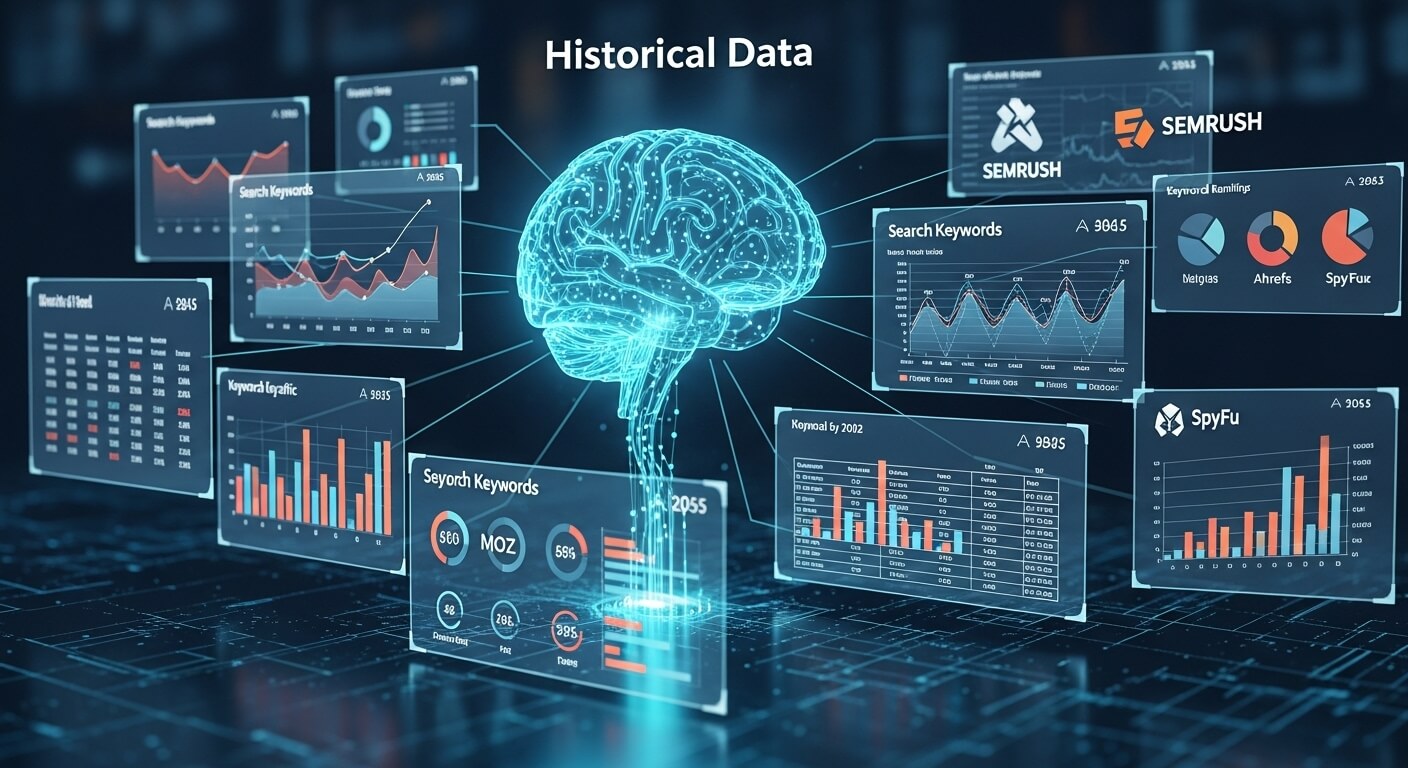In the competitive world of real estate, where captivating visuals, targeted outreach, and data-driven strategies define success, artificial intelligence has emerged as a transformative force. As of August 2025, AI tools are empowering agents, brokers, and marketers to automate tedious tasks, personalize campaigns, and generate leads with unprecedented efficiency. From virtual staging and content creation to predictive analytics and social media optimization, these technologies are not just enhancements—they’re essential for staying ahead in a market projected to reach $8.3 billion in AI adoption by 2027. This in-depth guide explores the best AI tools for real estate marketing, drawing from expert reviews, user experiences, and industry benchmarks to help professionals select solutions that boost visibility, engagement, and conversions.
Whether you’re a solo agent crafting compelling listings or a brokerage scaling digital campaigns, AI streamlines processes like property descriptions, email marketing, and audience targeting, saving hours weekly while improving ROI. With tools integrating machine learning for hyper-personalization and generative AI for creative assets, the landscape is evolving rapidly, making 2025 a pivotal year for adoption.
The Evolution and Development of AI in Real Estate Marketing
AI’s integration into real estate marketing traces back to early 2010s tools for basic lead scoring, but advancements in natural language processing (NLP) and computer vision accelerated its growth. By 2020, platforms began using AI for personalized recommendations, setting the stage for broader applications. The 2023 surge in generative AI, fueled by advanced models, enabled automated content creation, while 2024 saw multimodal tools handling images and videos for virtual tours.
In 2025, key developments include hybrid AI systems combining predictive analytics with creative generation, as seen in updates to design and valuation tools. Regulatory shifts, such as enhanced data privacy laws, have prompted ethical AI frameworks, ensuring compliance in leading platforms. Community feedback highlights tools evolving for mobile-first marketing, with integrations into CRM systems. This progression from reactive to proactive marketing underscores AI’s role in anticipating client needs and optimizing campaigns in real-time.
How AI Tools Work in Real Estate Marketing: A Technical Deep Dive
At their core, AI tools for real estate marketing leverage machine learning algorithms to process vast datasets, including property listings, buyer behaviors, and market trends. NLP parses text for sentiment analysis in reviews or generates SEO-optimized descriptions, while computer vision enhances images for virtual staging.
The process typically involves:
- Data Ingestion: Tools pull from MLS databases, social media, or user inputs to analyze patterns.
- Model Training: Using supervised learning, AI refines predictions, such as lead scoring.
- Generation and Optimization: Generative models create content, while optimization algorithms A/B test ads.
- Integration and Automation: APIs connect to platforms, automating workflows with minimal human intervention.
In practice, tools use chain-of-thought reasoning to filter properties and generate pitch decks, processing queries in seconds. Advanced variants employ multimodal AI, blending text and visuals for immersive campaigns. However, biases in training data can skew results, necessitating ongoing refinements seen in 2025 updates.
Key Features and Capabilities of Top AI Tools
The best AI tools offer features tailored to real estate’s unique demands, from hyper-local targeting to immersive visualizations.
- ChatGPT (OpenAI): Generates property descriptions, social posts, and email campaigns. Capabilities include multilingual support and prompt-based customization, ideal for content scaling.
- Canva Magic Studio: AI-powered design for flyers, social graphics, and videos. Features auto-editing and background removal, boosting visual marketing efficiency.
- HouseCanary: Predictive analytics for market forecasts and valuations, enabling targeted ads based on trends.
- Lofty (formerly Chime): AI assistant for lead qualification and chatbots, integrating with CRM for automated nurturing.
- RealEstateContent.ai: Automates social media content, scheduling posts with AI-generated captions and visuals.
- Styldod: Virtual staging and photo enhancement, creating realistic interiors from empty rooms.
- Manus AI: Searches listings, filters preferences, and generates client presentations.
- CINC: AI-driven lead generation with behavioral predictions for personalized marketing.
- Top Producer: Email automation and farming tools with AI insights for neighborhood targeting.
- BoxBrownie: Image editing and 360° tours, enhancing listing appeal.
These tools handle diverse tasks, from SEO-optimized blogs to video captions, with 2025 enhancements focusing on voice integration and real-time analytics.
Integration and Accessibility in Real Estate Workflows
Seamless integration is key; tools like Lofty sync with MLS and CRM systems, automating lead-to-listing pipelines. Accessibility varies: Free tiers in ChatGPT suit beginners, while enterprise plans in HouseCanary offer API access for custom apps. Mobile apps enable on-the-go marketing. Open-source options provide cost-effective alternatives for tech-savvy users.
Real-World Applications and Use Cases
AI tools shine in practical scenarios:
- Content Creation: Agents use ChatGPT to draft listings, saving 50% time, as per user reports.
- Social Media Marketing: RealEstateContent.ai schedules posts, increasing engagement by 30%.
- Lead Generation: CINC’s chatbots qualify prospects 24/7, converting inquiries faster.
- Virtual Staging: Styldod transforms photos, boosting online views by 40%.
Case studies: A brokerage using Manus AI closed deals 20% quicker by personalizing pitches. In commercial real estate, tools optimize ad spend.
Limitations and Ethical Considerations
Despite benefits, limitations include data privacy risks and potential biases in valuations. Tools raise concerns over over-reliance, potentially eroding personal touch. Ethical guidelines emphasize transparency, with 2025 updates incorporating bias audits. Costs can barrier small agents, though free tools mitigate this.
Comparisons with Other AI Tools
| Tool | Key Feature | Pricing | Best For | Integration |
|---|---|---|---|---|
| ChatGPT | Content Gen | Free/Paid | Descriptions | CRM/API |
| Canva | Design | Free/Paid | Visuals | Social Media |
| HouseCanary | Analytics | Subscription | Valuations | MLS |
| Lofty | Chatbots | Paid | Leads | |
| Styldod | Staging | Per Use | Photos | Listings |
ChatGPT excels in versatility but lacks specialized real estate focus compared to HouseCanary’s accuracy.
Future Prospects and Updates in 2025
Expect deeper integrations with AR/VR for tours and blockchain for secure data. New tools promise automation leaps.
Frequently Asked Questions About AI Tools for Real Estate Marketing
1.What are the best AI tools for real estate marketing?
ChatGPT, Canva, HouseCanary, Lofty, Styldod.
2.How does AI help in real estate lead generation?
Through chatbots and predictive analytics like in CINC.
3.What AI tool is best for virtual staging?
Styldod for realistic enhancements.
4.Is ChatGPT useful for real estate agents?
Yes, for content and scripts.
5.What are free AI tools for real estate?
ChatGPT basic, Canva free tier.
6.How to use AI for social media in real estate?
RealEstateContent.ai for automated posts.
7.What AI tools improve property valuations?
HouseCanary for accurate forecasts.
8.Are there AI tools for email marketing in real estate?
Top Producer and Lone Wolf.
9.What is the best AI for creating real estate videos?
Canva for editing.
10.How does AI personalize real estate marketing?
By analyzing buyer data for targeted campaigns.
11.What AI tools are best for commercial real estate marketing?
HouseCanary and similar analytics platforms.
12.Can AI generate real estate listings?
Yes, via ChatGPT or specialized tools.
13.What AI tools integrate with MLS?
Lofty and CINC.
14.Are AI tools safe for real estate data?
Most comply with privacy laws, but verify.
15.What’s next for AI in real estate marketing?
AR integrations and advanced analytics.
Conclusion
The best AI tools for real estate marketing in 2025, from ChatGPT’s versatile content creation to Styldod’s visual magic, are revolutionizing how professionals engage audiences and close deals. By automating routines and providing insights, they enable focus on client relationships amid market shifts. As adoption grows, balancing innovation with ethics will be crucial. Embrace these tools to elevate your strategy—your competitive edge awaits.

The editor of All-AI.Tools is a professional technology writer specializing in artificial intelligence and chatbot tools. With a strong focus on delivering clear, accurate, and up-to-date content, they provide readers with in-depth guides, expert insights, and practical information on the latest AI innovations. Committed to fostering understanding of fun AI tools and their real-world applications, the editor ensures that All-AI.Tools remains a reliable and authoritative resource for professionals, developers, and AI enthusiasts.



